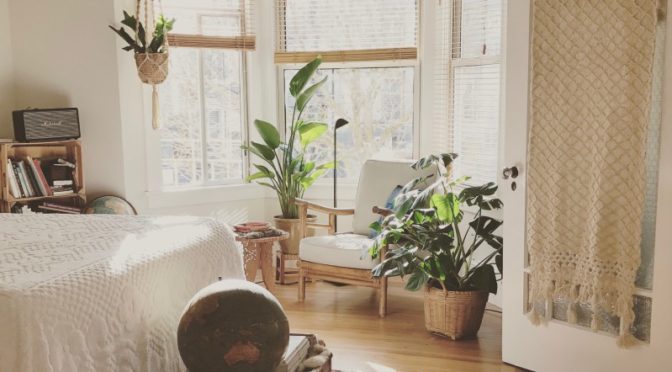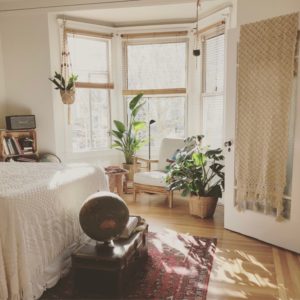
While it’s a common belief that adding either solid wood flooring (i.e., hardwood) or engineered wood to a home will bring it a higher resale value when you decide to put it on the market, the truth is more difficult to nail down, if you’ll excuse the pun. Today we’ll look at hard evidence of whether or not a home’s listing and sale prices are positively impacted by the addition or presence of hardwood floors; it’s better to know this before making such an investment if you haven’t already.
There isn’t any hard data to support higher resale values for solid wood flooring

The problem with claiming that upgrading your floors will lead to more money down the road is that it isn’t supported by data. Yes, it’s far better to have a new or clean floor than one with holes and patchwork, but there isn’t evidence that wood flooring will command a premium over any other kind, including but not limited to vinyl, laminate, ceramic tiles, marble, bamboo, concrete, and brick.
There are some studies suggesting home buyers will pay a bit extra if their homes come with wooden floors. However, much of the water is muddied by speculative terms in the data like “believe” and “might pay more”; similarly, the ROI estimates for hardwood floor renovations aren’t based on increased sale prices or direct A/B comparisons.
It’s also worth noting that the people who typically estimate value increases due to hardwood floor additions are people with a vested interest in higher sale prices, such as real estate agents, designers, architects, builders, flooring retailers, and installers.
Do hardwood floors result in an increase in aesthetic value?
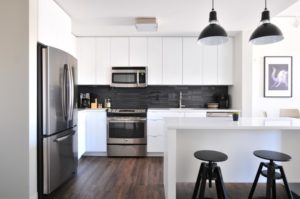
When it comes to aesthetics and subjective opinions, the results are clearer: nearly everyone appreciates the look of hardwood floors, whether or not they chose to install them. These results have been shown in a range of market studies among owners of homes with hardwood floors as well as the general home-owning population. The results hold even when polling people who cite the hardness or sterility of hardwood floors as reasons why they didn’t choose them for their homes. Of course, keep in mind that you can mitigate the temperature and comfort concerns to a large degree with strategically-placed area rugs.
As a result, if you’re interested in investing in hardwood flooring simply to increase the beauty and aesthetic appeal of your home, you can rest assured that you’re making a good investment, particularly if you use wood floors like Brazilian hardwood or bamboo, both of which are particularly sought after in the solid floor market these days. However, when we return to numbers-based arguments for resale value, the subjective appeal of hardwood floor becomes harder to justify.
Home trends are fluid and change from year to year

Another thorn in the side of the resale value theory is that even if it’s true–that hardwood currently commands a small premium compared to other floors in good condition–there’s no guarantee that it’ll hold true for your house, in your neighborhood, in your city, and most importantly, for your buyer and when you are ready to sell. The entire market is fickle, and the resale value of a home is one part of an entire chain of unpredictable events.
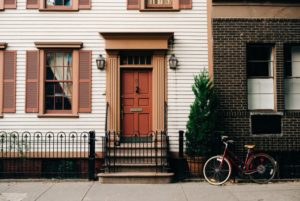
Just look at resale values for home floors–as in the number of stories in a floor, not what lined the floors in a home. A few years ago, two-story homes were all the rage, particularly those with bedrooms on the upper floors, as they offered security and more house for less land. Today, on the other hand, one-story homes have gained or overtaken them completely, depending on the market, because they’re better for aging in place.

Similarly, giant homes appear to be a never-ending trend in the market, but the trend of minimal yard space to make room for the giant houses may not hold. And while wood flooring advocate state that real estate agents in the United States unanimously feel (at 99%, per estimates from the National Wood Flooring Association) that hardwood-floored homes are easier to sell, produce higher sale prices, and spend less time on the market, there’s a curious absence of proof behind the statements, not to mention methodology behind how they were deemed valid and representative.
Is it worth investing in hardwood floors to increase real estate value?
The answer to this question is ultimately up to you. The truth is that there’s no clear answer of whether your home will sell for more money with hardwood floors than it would with any other floor. Most people in the business of selling homes or things associated with hardwood floors will support the argument, but that doesn’t mean they can confirm it with solid, hard numbers. In the end, someone’s going to love whatever floor you choose–many people will, in fact–it’s just a question of how long you’re willing to hold out to find them and how much you want them to pay for it.
If you own hardwood floors, which vacuums are best for maintaining them?
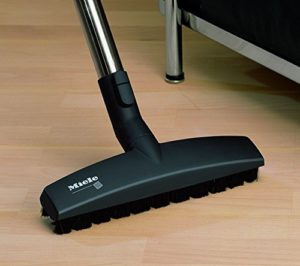
Regardless of where you stand on the additional value of hardwood flooring when it comes to selling your home, as long as you own it, it’s worth maintaining it correctly. In our books, that means using a vacuum with a Parquet head. A Parquet head both polishes your hardwood floor and makes it far easier to clean it instead of simply pushing dirt, dust, and pet hair from one section of your home to another.
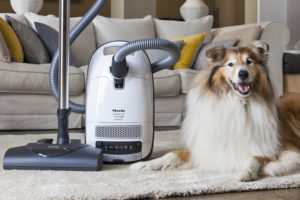
We also recommend vacuums with electric brush heads–not to clean hardwood floors, as they’re unnecessary there, but to clean the carpeting you have elsewhere in your home. Rather than investing in two vacuums, it’s best to invest in one good machine that can fulfill both roles fluidly. Two good examples include the Miele Complete C3 Cat & Dog (reviewed here and here) and Miele Compact C2 Electro+ (reviewed here and here). They’re also both buy-it-for-life vacuums that you’ll be able to use for as long as you live in your home, statistically speaking.
![]() You can buy the Miele Complete C3 Cat & Dog here on Amazon or buy the Miele Compact C2 Electro+ here.
You can buy the Miele Complete C3 Cat & Dog here on Amazon or buy the Miele Compact C2 Electro+ here.
![]() Canadians can buy the Miele C3 Cat & Dog here or buy the Compact Electro+ here.
Canadians can buy the Miele C3 Cat & Dog here or buy the Compact Electro+ here.
 If you find our research on PMC helpful, you can follow our efforts to keep maniacally reviewing home cleaning tools by shopping through our links above. We promise to keep fighting the good fight against every horror children, animals, and grown, yet messy humans can inflict upon a clean home.
If you find our research on PMC helpful, you can follow our efforts to keep maniacally reviewing home cleaning tools by shopping through our links above. We promise to keep fighting the good fight against every horror children, animals, and grown, yet messy humans can inflict upon a clean home.

